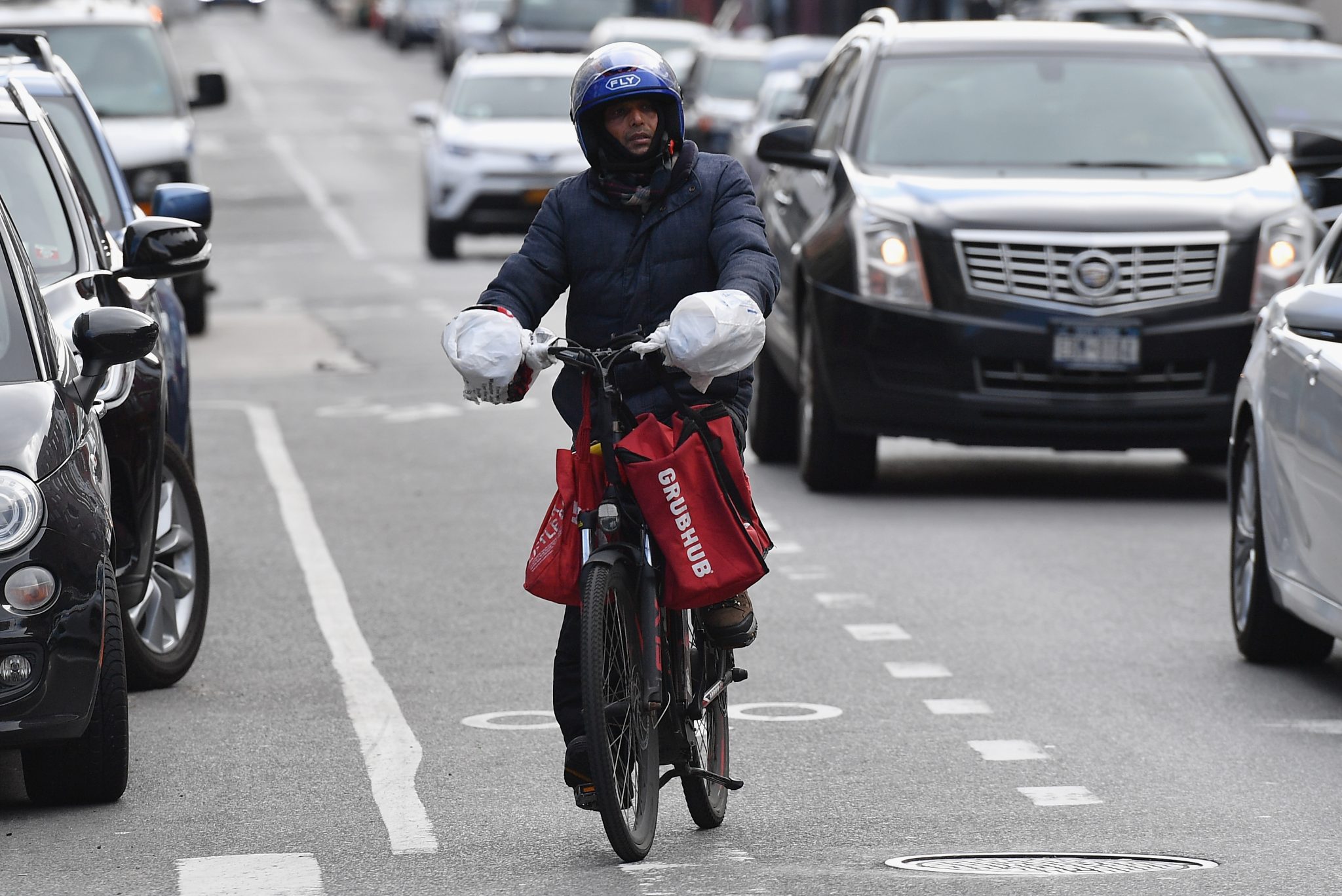

(Photo by Angela Weiss/AFP/Getty Images.)
Low-income immigrant communities may very well be facing the brunt of the ongoing coronavirus outbreak. While public health experts and government officials are urging people to stay at home, many in these communities can’t afford to remain indoors. Many migrants in the United States are still at work, often in essential jobs with little security in the labor, retail, and service industries. These workers also may not have health insurance or the option to take paid sick leave.
The threat is further compounded by limited access to healthcare. While uninsured immigrants often depend on local community health clinics, some are currently facing funding, staffing, and equipment shortages. A new policy measure recently enacted by the Trump administration is also causing further confusion and concern. The public charge rule, which went into effect last month, penalizes the use of federal benefits such as food stamps or Medicare, putting certain immigrants’ chances of getting approved for a green card or visa in jeopardy. The administration has instituted an exemption for treatment for COVID-19, but many opponents of the rule are concerned that it’s still keeping immigrants from seeking out vital healthcare.
In this episode, Vox politics and policy reporter Catherine Kim expands on her recent reporting on the challenges low-income immigrants face during a widespread pandemic.
This Latino USA podcast was produced by Alejandra Salazar.
***
NPR’s Latino USA with Maria Hinojosa, produced by Futuro Media, is the longest-running Latino-focused program on U.S. public media.


